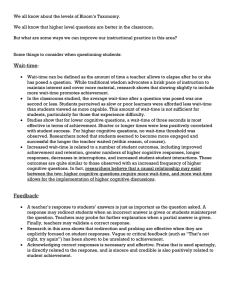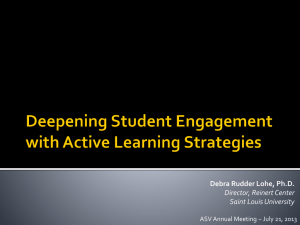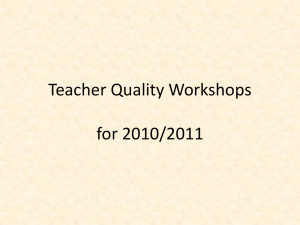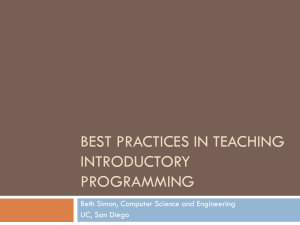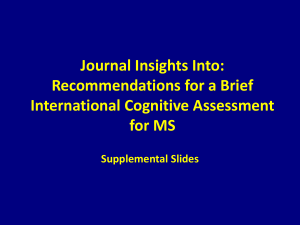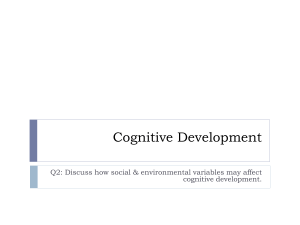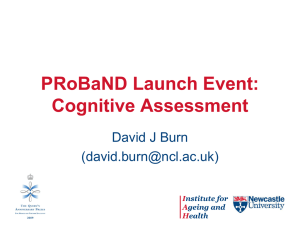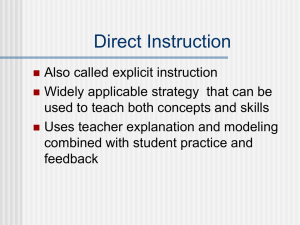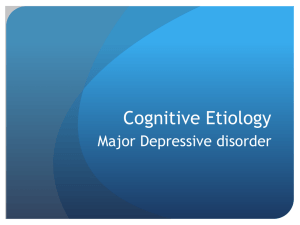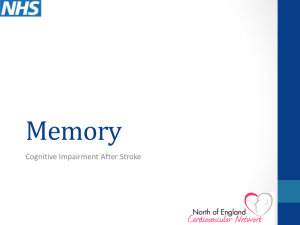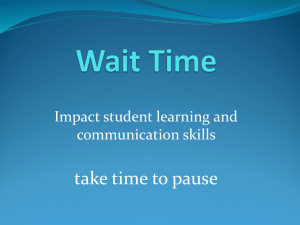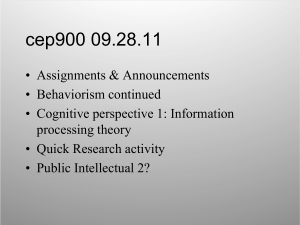HOT and Common Core - Catawba County Schools
advertisement
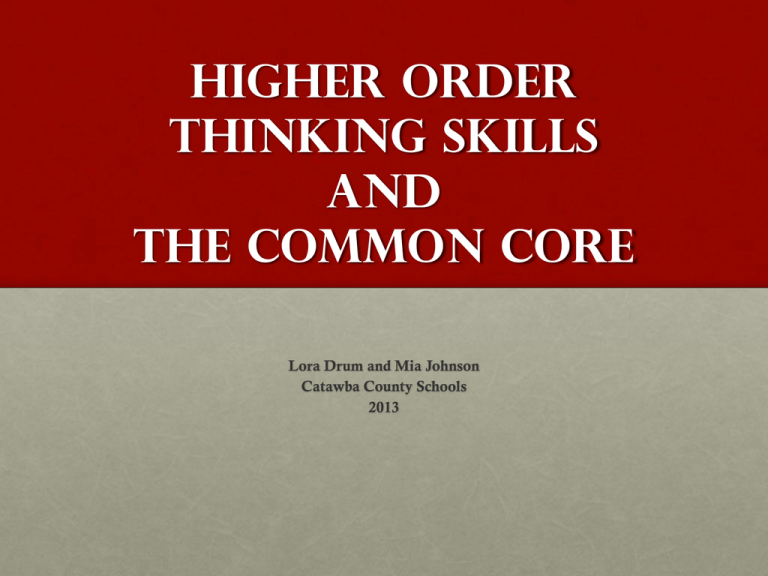
Higher order thinking Skills and the Common Core Lora Drum and Mia Johnson Catawba County Schools 2013 Revised Bloom’s Taxonomy Self assessment 1. Read each statement and rate yourself by placing an based on where you are on the continuum. Disagree Sometimes Agree This self assessment is for your personal use. Did you know?... Research on Cognitive Level of Questions shows: • on average during classroom recitations, about 60% of questions asked are lower cognitive level questions, 20% are higher cognitive levels ; and 20% are procedural • lower cognitive questions are more effective than higher level questions with young (primary level) children, particularly the disadvantaged • higher cognitive questions are not categorically better than lower cognitive questions in eliciting higher level responses or in promoting learning gains Did you know? • lower cognitive questions are more effective when the teachers’ purpose is to impart factual knowledge and assist students in committing this knowledge to memory • in most classes, above the primary grades, a combination of higher and lower cognitive questions is superior to exclusive use of one or the other • simply asking higher cognitive questions does not necessarily lead students to produce higher cognitive responses • teaching students to draw inferences and giving them practice in doing so result in higher cognitive responses and greater learning gains It is critical to plan for higher level thinking questions ,prior to “teaching time.” These must be strategically planned. Differentiated “Wait-Time” Wait-time allows students sufficient time to process and develop a response to a question before the teacher asks a specific student to respond. • Every 20 minutes provide a 60 second talk break for students to process information • Give students 3-5 seconds of “wait-time”. Wait time… • Some students need more than 5 seconds when the question is above their recall level. • Some boys may need up to 60 seconds to bring information up on their “screen”. • Many students from poverty need additional “wait- time”. Wait time… • Students whose primary language is not English will need additional processing time. • Students with expressive language difficulty need more time for the retrieval of words and thoughts. • Some students with learning disabilities have difficulty locating and retrieving “stored” information will benefit from increased wait-time. Note: Wait-time and think-time are often used interchangeably. Strategies activity 1. Choose a card on your table. 2. Form a neighborhood of friends with colleagues who have the same color card. 3. Read the Strategy Card details given. 4. Discuss ways that you can use this with your specific grade level. 5. Fill in the blanks on your card to share with your group 6. You will have 7 minutes for this activity. Strategies….SHARE • All strategies will be compiled into a document with the information you and your colleagues created during this activity. • The document will be posted on your Share Drive as well as the Catawba County School Curriculum webpage A Few Additional Ideas… • Having students create questions takes critical thinking to a higher level • After modeling and guided practice, allow students opportunities to generate questions with small groups and partners • Bloom’s Bucks is a fun way to help encourage students to develop higher level questions (lest’ practice using what you’ve learned and read today) • QARs are also great tools for helping students understand the different types of questions (see handout foldable: text to brain questioning • Text dependent questions are not necessarily right there questions students should also use evidence from text to prove their respond to inferential questions. Closure: Self-Assessment Rate Yourself: Would you change your rating now? Do you have strategies to help increase your rating on any area? Reflect: Choose the top 3 areas that you find most important in your classroom. Note each one with a ★. Goal Setting…. I will plan at least 3 higher order thinking activities per day. I will ask higher order thinking questions to EVERY student EVERY day!

